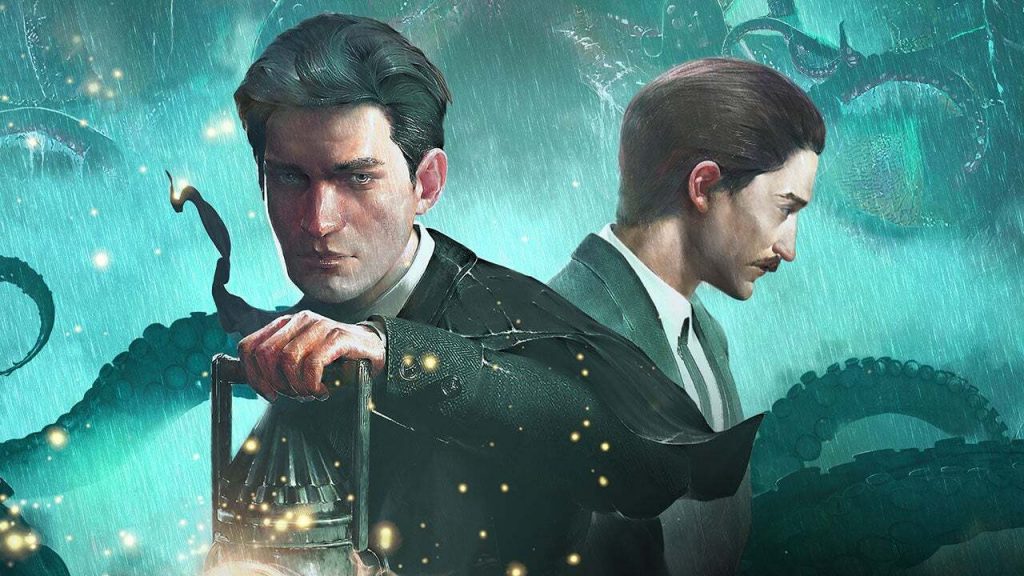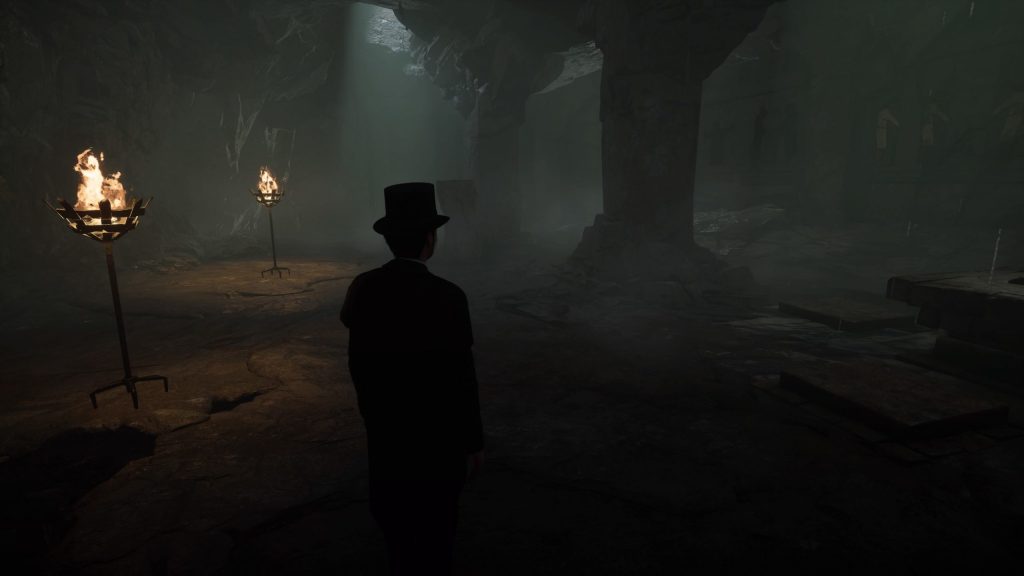Sherlock Holmes: The Awakened (2023) is the latest instalment in the long-running series of Sherlock Holmes games created by Ukrainian game developer Frogware Entertainment. The game is a remake of the 2007 title of the same name, pointing the series in a new direction while using a story fans know very well, successfully serving already-known content under a new and fresh light. Made under the Russian invasion, the game went through several difficulties that were (partially) overcome by a successful Kickstarter campaign launch in November of 2022. This fact not only makes the game’s production more admirable but it also makes for a captivating (even if a bit short) and remarkable remake.
Using the new game engine developed for 2021’s Chapter One, Sherlock Holmes: The Awakened (2023) also continues its story. That’s a notable and agreeable departure from the original, which was not very story-oriented but rather puzzle-driven. In that vein, the game explores the development of Holmes and Watson’s friendship. The not-yet consultant detective Sherlock Holmes and Doctor John H. Watson are new roommates at the iconic 221B Baker Street. A lifetime opportunity to experience a bonding adventure comes knocking when a client of the doctor reports his servant is missing. This disappearance is the first step in a worldwide investigation that will take Holmes and Watson to the edge of madness. The story effectively pushes Holmes’s rational mind to its breaking point, and witnessing it makes for an addictive experience.

The game creates interesting character developments to explore the early years of the duo’s friendship, starting at the end of 2021’s Chapter One. The game does so by exacerbating Doyle’s original contrast between the two leads so that they organically complete one another. In that regard, the outcome of their adventure is a magnificent metaphor for life’s traumas that bind people together—a recurrent theme in many works in the thriller and horror genres. Holmes is depicted as exaggeratedly observant, puzzle-solving, and hyper-focused on his investigation, and his habit of finding himself engaged in adventures complements the more British and uneventful lifestyle Watson adopted when he retired from the army. The same goes for Watson, who is a useful ally, completing him on a human level, like when it comes to talking to people in distress.
The 2023 game starts with Watson returning to 221B Baker Street after a long day of work, only to find Holmes using his belongings inattempt to unravel an unexisting conspiracy (he’s bored). The scene superbly highlights Holmes’s personality, mixing antisocial behaviours and autistic tendencies, and establishes their new friendship through Watson’s surprise. His past in the military and his present work as a doctor enable Watson to calmly handle many stressful situations. It is clearly implied that Watson’s well-being after the game’s events is a result of his experience with difficult situations in the past. Being the only one of the two to still be sane enough to normally operate, Watson takes care of Holmes, whose mental health has taken a serious beating.
And those events are dreadful! The game truly realizes a successful depiction of a Lovecraftian environment while stepping away from the stereotypical thick fog, dark alleys, and fish people employed in so many adaptations. Actually, the game makes very little use of them, prioritizing bright environments and daylight to set the scene. What the team keeps from Lovecraft’s worldbuilding style is more of an uncanniness within local lores. The duo visits places filled with uncertainties and waters (it’s an important lovecraftian element) in a fishermen’s village in New Orleans, the docks of London, swamps, and whatnot.

The game also uses (fictional) local beliefs to build their mystery in a Lovecraftian way, without falling into H.P.’s racism. The setting is a fascinating escapade full of secrets that retains players’ attention. Stepping away from facile—and usually more tedious and annoying than scary—jump scares or childish gore effects, the game focuses on ambience. The music and mise-en-scène provide the sensation of ominous danger lurking over Holmes and Watson’s investigation builds the horror atmosphere. Even if, at first sight, the game doesn’t seem to offer much in terms of pure on-the-edge-of-your-seat ambiance, it succeeds in making players feel uneasy. However, there is a distinct lack of paranoid elements, and the near absence of more secret-keeping shady characters that are so typical of Lovecraft, as well as a Holmes that relies too heavily on one-liners.
While the game is not perfect, it is one hell of a fun ride given its challenging development, as well as obligations as a remake. The characters are lovable, the investigation is truly captivating, and the overall experience is highly enjoyable. We could quibble on its price, lifespan, and failures regarding some horror elements, but at the end of the day, it’s still a game you finish without noticing how time flies. It certainly paves the way for the studio’s immediate future, which, as long as the war lasts, could focus on remaking old titles of the series. However, I hope the next game—possibly a remake of 2007’s Sherlock Holmes: Nemesis, as some in-game elements seem to tease—will give us a little bit more for our money in terms of pure content. With that being said, this is an ideal game for the summer, no matter the gamer’s experience level. Not too long and not too scary for the casual player and a good bite for the more advanced player.
